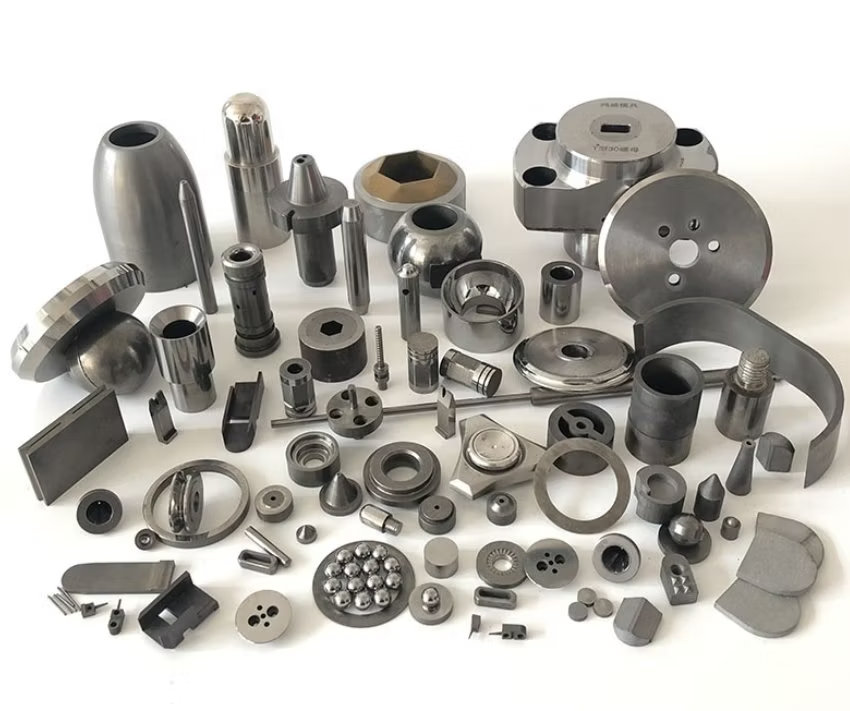
Tungsten Products Overview
Tungsten is a rare and extremely durable metal known for its high melting point, strength, and resistance to corrosion. It is often used in industrial applications that require materials to withstand extreme temperatures and harsh conditions.
Properties of Tungsten
- High Melting Point: Tungsten has the highest melting point of all metals at 3422°C.
- Density: Tungsten is extremely dense, with a density of 19.25 g/cm³, similar to gold.
- Strength and Hardness: Tungsten is exceptionally strong and hard, making it ideal for applications requiring durability.
- Corrosion Resistance: It is highly resistant to corrosion and oxidation in most environments.
- Electrical Conductivity: Tungsten has good electrical conductivity, making it suitable for electronic components.
Types of Tungsten Products
Various tungsten products are manufactured to meet specific industrial requirements. Here are some of the most common types:
- Tungsten Rods: Used in machining, aerospace, and construction industries for their strength and heat resistance.
- Tungsten Sheets and Plates: Preferred for applications requiring heat shielding and electrical conductivity.
- Tungsten Wire: Commonly used in lighting, electronics, and medical devices due to its fine structure and resistance to heat.
- Tungsten Carbide: Known for its exceptional hardness, it is widely used in cutting tools, drilling equipment, and wear-resistant applications.
- Tungsten Alloys: Alloys with other metals like nickel, copper, and iron are used in aerospace, military, and radiation shielding.
- Tungsten Electrodes: Used in welding applications due to their high heat resistance and durability.
Applications of Tungsten
Tungsten's unique properties make it a vital material in numerous industries. Some of its primary applications include:
- Aerospace Industry: Utilized for making heat shields, engine components, and spacecraft parts.
- Defense and Ammunition: Used in the production of armor-piercing ammunition and missile components.
- Electronics: Employed in the production of filaments for light bulbs, electrical contacts, and semiconductor materials.
- Medical Equipment: Tungsten is used in radiation shielding for cancer treatments and imaging devices.
- High-Temperature Furnaces: Utilized in the manufacture of heating elements and protective shields.
- Automotive Industry: Found in sensors, welding electrodes, and other automotive components.
Specifications of Tungsten Products
| Product | Purity | Density (g/cm³) | Melting Point (°C) | Applications |
|---|---|---|---|---|
| Tungsten Rods | 99.95% | 19.25 | 3422 | Aerospace, Construction, Machining |
| Tungsten Sheets | 99.95% | 19.25 | 3422 | Heat Shielding, Electronics |
| Tungsten Wire | 99.95% | 19.25 | 3422 | Lighting, Medical Devices |
| Tungsten Carbide | 85-95% | 15.6 | 2870 | Cutting Tools, Mining, Drilling |
| Tungsten Alloys | 90-95% | 17.0-18.5 | 3000 | Defense, Aerospace, Medical Shielding |
Chemical Composition of Tungsten Products
| Product | W (%) | Ni (%) | Cu (%) | Fe (%) | Other (%) |
|---|---|---|---|---|---|
| Pure Tungsten | 99.95 | 0 | 0 | 0 | 0.05 |
| Tungsten Carbide | 85-95 | 0 | 0 | 0 | 5-15 (C, Co) |
| Tungsten Alloy (W-Ni-Cu) | 90-95 | 3-5 | 2-4 | 0 | 0.05 |
Mechanical Properties of Tungsten Products
| Product | Tensile Strength (MPa) | Yield Strength (MPa) | Elongation (%) | Hardness (HV) |
|---|---|---|---|---|
| Pure Tungsten | 500-700 | 300-500 | 5-10 | 400-600 |
| Tungsten Carbide | 1300-1600 | NA | 2-4 | 1600-2000 |
| Tungsten Alloy (W-Ni-Cu) | 700-900 | 500-700 | 10-15 | 250-400 |
Specification Standards for Tungsten Products
| Product | Standard | Description |
|---|---|---|
| Pure Tungsten | ASTM B760 | Standard Specification for Tungsten Plate, Sheet, and Strip |
| Tungsten Carbide | ISO 513 | Classification and Application of Hard Cutting Materials |
| Tungsten Alloy | ASTM B777 | Standard Specification for Tungsten Base High-Density Metal |
